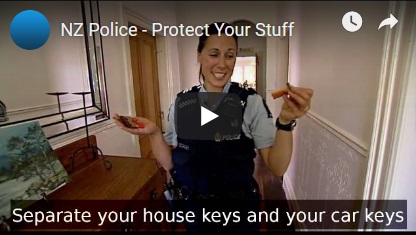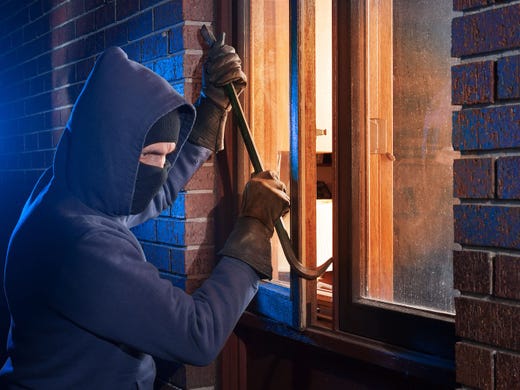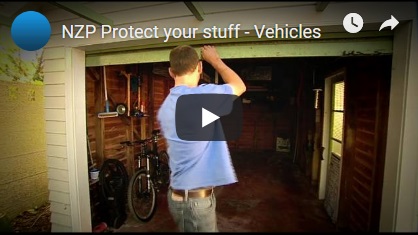
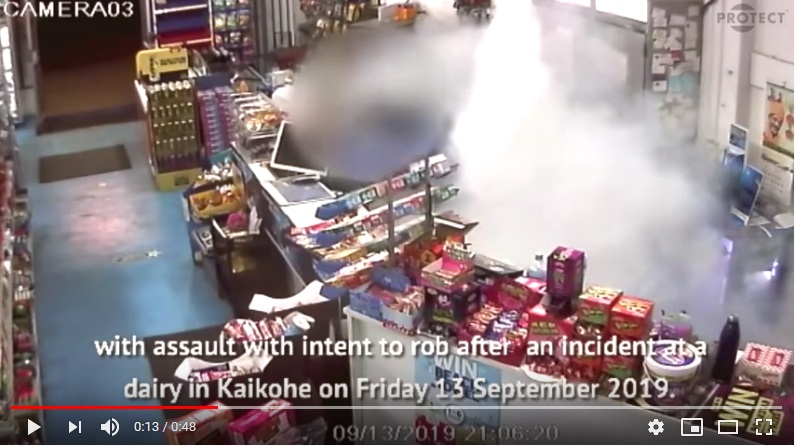
Click to See Fog Cannon Stopping a Robbery
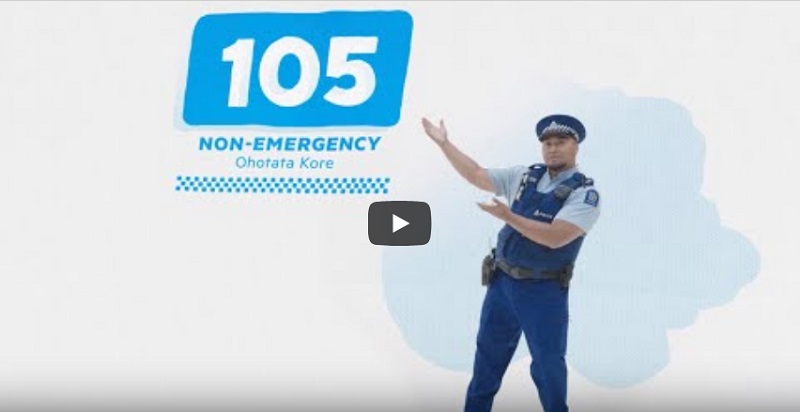
Click Here For Non Emergency Number Video
You can call 105 from both mobile and landline phones. It’s a free nationwide service available day and night for New Zealanders and overseas visitors.

Click Here For Drug Seizures by Region
You can also go online to 105.police.govt.nz to report:
- Theft in a public place
- Theft from a car
- Intentional property damage
- Shoplifting
- Lost property

Advice for people caught in a scam and information about who can help.
Steps to take
Follow these steps if you have been caught in a scam:
What to do now
Stop all contact with the scammer
Once you realise you are being scammed, do not continue the conversation. Hang up the phone. Don’t reply to emails or letters scammers have sent you. If you have been scammed online, block the scammer from contacting you.
Do not make any more payments
It can be tempting to stay involved in the hope you will get some of your money back. You must not make any more payments. Some scammers target people caught in recent scams, eg by pretending to be an overseas enforcement agency that can return all of your money for a fee. Don’t give money to anyone on the promise they will get your lost money back. Unfortunately, if you have paid scammers, the chances of recovering your money are not good.
Contact the bank or service you sent money through
If you are the victim of a financial scam, credit card scam or identity theft, contact your bank immediately. They will have a policy in place to deal with fraud. If you have sent money through another bank or transfer service, it’s a good idea to contact the service you used.
Reporting is an important step. It puts you in touch with someone who can give advice specific to your situation. It also helps other people avoid this kind of scam. Report the scam to Netsafe on 0508 NETSAFE (638723)
Netsafe advises on all scams — not just online activity. If you or someone else is in danger, or a crime is being committed, call 111.
What to do later
Assess your security at home and online
If your personal or financial information has been given out or stolen in a scam, change all of your online passwords on a device not linked to the scam. Use a different password for each account. If your computer or phone has been hacked in a scam, take it to an authorised technician to be cleaned.
CERT NZ are experts in cyber security. See their website for tips on simple ways to improve your cyber safety.
Protect your information online — CERT NZ
Equip yourself to recognise scams
Anyone can be caught unaware by a scam. Take time to learn about the approaches scammers use and how you can protect yourself.
Talk about what happened
Telling your friends and family about the scam is one of the best ways to take action. It can be hard, but sharing your story is worthwhile because scammers rely on people being secretive. Every person you talk to will be better prepared to avoid scams in the future.
Help is available
It is almost impossible to recover lost money unless a scam has local connections, but advice is available.
List of organisations with specialist knowledge you might find helpful:
Netsafe
Helps New Zealanders stay safe online, with expertise in online bullying, harassment and abuse under the Harmful Digital Communications Act and all types of scams.
Ministry of Justice
Provides information on the Harmful Digital Communications Act including the provisions of the Act and Safe Harbour provisions.
Harmful digital communications — Ministry of Justice
CERT NZ
Supports individuals and organisations affected by online incidents, such as online scams or cyber security incidents. Helps people recognise and avoid online scams and fraud.
Responding to cyber threats in NZ — Cert NZ
NZ Police
Liaises with overseas agencies. Prevents, investigates and prosecutes crime within our communities.
In an emergency, call 111.
Victim Support
24/7 support, information, and advice for victims of crime.
0800 842 846
Banking Ombudsman
Helps resolve and prevent banking problems, including scam-related issues.
Contact us — Banking Ombudsman
Commission for Financial Capability
Support and education for helping kiwis get savvy on scams.
Contact us — Commission for Financial Capability
Financial Markets Authority
Takes investment scam reports. Provides a warnings list and information on how to avoid scams.
Contact us — Financial Markets Authority
Department of Internal Affairs
Regulates the Unsolicited Electronic Messages Act 2007, which prohibits the sending of spam.
Spam — Department of Internal Affairs
The Commerce Commission
Enforces the Fair Trading Act, which prohibits misleading conduct and unfair selling practices by those 'in trade' in New Zealand.
How the commission helps — Commerce Commission
Serious Fraud Office
Investigates and prosecutes serious financial crime, including bribery and corruption.
Report a fraud — Serious Fraud Office
Privacy Commissioner
If your privacy has been breached you can make complaints the Office of the Privacy Commissioner about breaches of the Privacy Act.
District Court
This is the largest court in the country and deals with many of the legal issues affecting New Zealanders. The District Court deals with claims more than $15,000 (the limit for the Disputes Tribunal), up to $350,000.
-
Scam alerts
Be aware of recent scams and learn more about how scams work. -
Case studies
Stories to show how different types of scams work.



